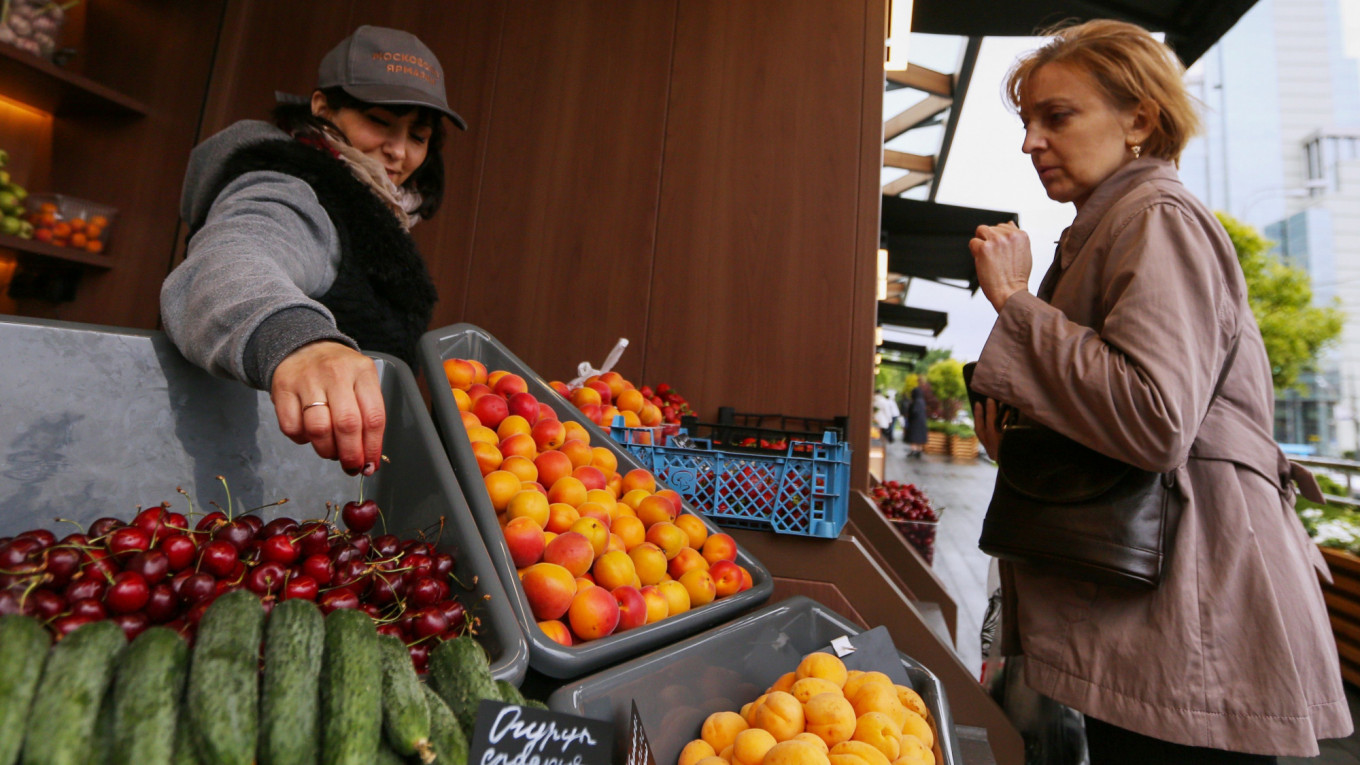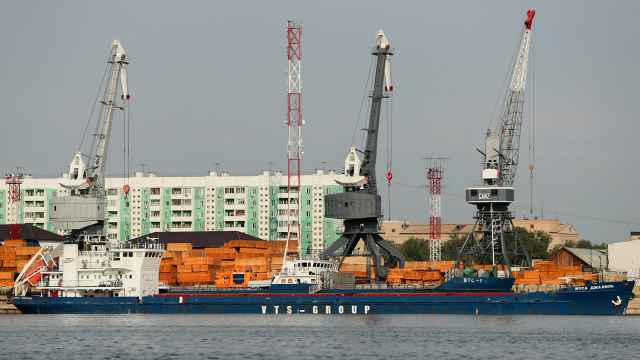Russia’s counter-sanctions against western food imports cost its citizens $70 per person every year through higher prices.
New research into the impact of Russia’s counter-sanctions and its import substitution policies found that the costs to Russian shoppers through higher prices for food, including fish, meat, cheese and vegetables far outweigh any of the program’s benefits.
Economists analyzed consumption patterns and food prices to conclude that Russian consumers lose 445 billion rubles a year in 2013 prices on goods banned under Russian counter-sanctions.
Adjusting the figures to today’s prices, the loss works out at 632 billion rubles a year ($9.9 billion) — or just under 4,400 rubles ($69) per person.
The research was led by teams from the Centre for Economic and Financial Research (CEFIR) and the Russian Presidential Academy of National Economy and Public Administration (RANPEA), and reported in Russian daily Kommersant.
President Vladimir Putin introduced counter-sanctions in response to EU and U.S. sanctions against Russia following the annexation of Crimea. Since 2014, the Russian government has pushed import substitution policies to build up Russia’s domestic agricultural production and build the country’s self-sufficiency in meat, milk, fish, cheese, fruit and vegetables.
However, the report found the only sectors to have been successful in replacing European imports and reducing prices are the poultry, pork and tomato industries. The net benefits of import substitution for Russian consumers were calculated at around 75 billion rubles in 2013 prices — overwhelmed by the extra 530 billion rubles that Russian consumers are spending on other food covered by the embargo every year, and resulting in the 4,400 ruble per person loss.
“Five years after the introduction of counter-sanctions, Russian consumers continue to pay for them from their own pockets. Although a few industries have seen a positive impact of the import substitution policy, most of them are not effective enough to change general price dynamics,” the study said.
A Message from The Moscow Times:
Dear readers,
We are facing unprecedented challenges. Russia's Prosecutor General's Office has designated The Moscow Times as an "undesirable" organization, criminalizing our work and putting our staff at risk of prosecution. This follows our earlier unjust labeling as a "foreign agent."
These actions are direct attempts to silence independent journalism in Russia. The authorities claim our work "discredits the decisions of the Russian leadership." We see things differently: we strive to provide accurate, unbiased reporting on Russia.
We, the journalists of The Moscow Times, refuse to be silenced. But to continue our work, we need your help.
Your support, no matter how small, makes a world of difference. If you can, please support us monthly starting from just $2. It's quick to set up, and every contribution makes a significant impact.
By supporting The Moscow Times, you're defending open, independent journalism in the face of repression. Thank you for standing with us.
Remind me later.






